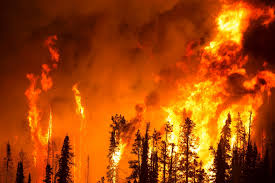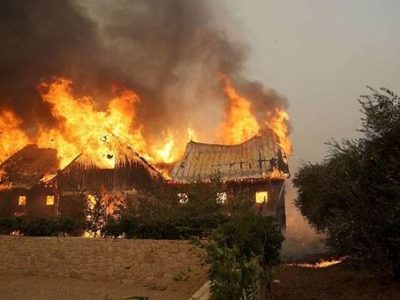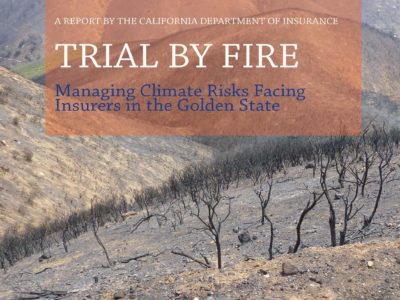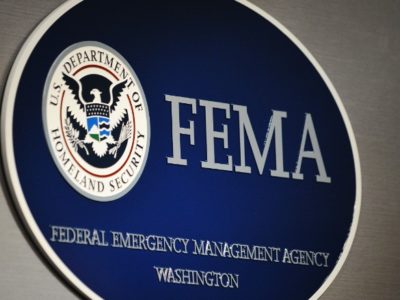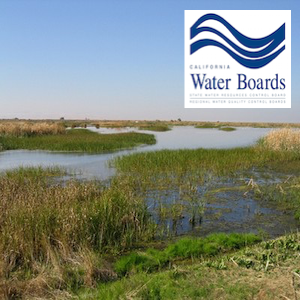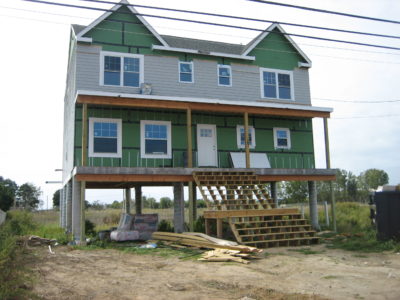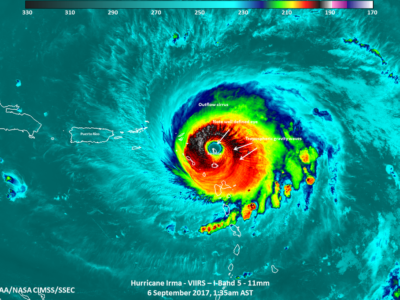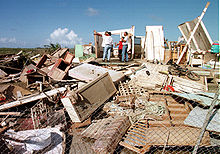Disaster Law
Wildfires: Managing the Risks
How can we limit the spread of wildfires and save people and property?
Wildfires are already a serious problem, and climate change will only make the problem worse, as I’ve discussed in my two prior posts. Reducing carbon emissions can help keep the problem from growing, but we need to deal with the risks we’re already facing. That is going to require a portfolio of risk management strategies. We …
Continue reading “Wildfires: Managing the Risks”
CONTINUE READINGBurning in the Heat
Wildfires were bad enough already. Climate change is making them worse.
Fires have been unusually severe lately. According to one scientist, “’[I]n the late 20th and early 21st century, with these hot droughts, fires are ripping now with a severity and ferocity that’s unprecedented,’ says Tom Swetnam. . . . A fire in the Jemez Mountains Swetnam studies burned 40,000 acres in 12 hours, a ‘horizontal …
Continue reading “Burning in the Heat”
CONTINUE READINGSpreading Like Wildfire
They don’t get as much attention as floods or earthquakes, but wildfires are deadly serious.
This is the first of a three-part series about wildfires. Massive wildfires are a growing problem, posing risks to people and the environment. Considering that my house is located only a few miles from the 1991 Oakland Hills fire, which killed 25 people, destroyed 2800 homes, and caused $1.8 billion in damage, this is an …
Continue reading “Spreading Like Wildfire”
CONTINUE READINGNew Report Co-Authored with California Department of Insurance Analyzes Climate Risks to Insurance Industry
Climate change threatens the industry’s viability right when it is needed most. The new report from CDI and CLEE outlines key risks and opportunities for insurers, regulators, and residents.
Climate change presents a wide range of risks to California’s insurance industry, as Californians across the state contend with unprecedented wildfires, changing storm patterns, increased risks of flooding and sea level rise, and disruptions to business from agriculture to fisheries and beyond. Potential decarbonization of the economy and litigation based on climate-related damages further threaten …
CONTINUE READINGIs FEMA Ready For a Tumultuous Future?
FEMA has a lot of work to do to get up to the mark on disaster response and risk mitigation.
We face a future of increasing peril from disasters. One reason is climate change; another is that more people live in coastal areas where risks are especially high.We’re currently seeing the results of climate change in the California fires, and we saw both factors at work in last year’s flooding in Houston after Hurricane Harvey. …
Continue reading “Is FEMA Ready For a Tumultuous Future?”
CONTINUE READINGGuest Blogger Cliff Villa: Es FEMA El Problema? Hurricane Maria and the Slow Road to Recovery in Puerto Rico
Strolling west on Calle Loiza from the Ocean Park neighborhood of San Juan, Puerto Rico, you could miss the devastation wrought by Hurricane Maria last September. Here in early May 2018, runners and walkers lap the track at Parque Barbosa while middle-aged men try to keep pace with younger guys on the sheltered basketball court. …
CONTINUE READINGWetlands, WOTUS and California
California Regulators Can and Should Adopt Strong State Wetlands Protection Rules
For the past year, an overriding concern of many Californians has been whether and how state legislators and regulators can fill the environmental law and policy gap left by a Trump Administration that is in the process of reversing a host of Obama-era environmental rules and that has otherwise largely abandoned the field of environmental …
Continue reading “Wetlands, WOTUS and California”
CONTINUE READINGDisaster Resilience: Inching Forward, Sliding Back
We’re slowing improving disaster resilience. But there have been some notable setbacks.
An ounce of prevention is worth a pound of cure, as the saying goes. The same is true for disasters. We are slowly getting better at mitigating disaster risks. These improvements don’t generally take the form of dramatic breakthroughs. Rather they involve incremental progress on a number of fronts. For instance, homes that were constructed …
Continue reading “Disaster Resilience: Inching Forward, Sliding Back”
CONTINUE READINGDisaster Insurance
States (for wind) and the Feds (for water) provide insurance for hurricane victims. Here’s how.
Rebuilding takes money. That makes insurance a crucial part of the equation. Insured losses are expected to be in the $70 billion range for Harvey and Irma combined. This includes commercial insurance, but the payments for home owners will also be hefty. Those costs are generally covered by government-supported insurance markets. I’ve posted previously about …
Continue reading “Disaster Insurance”
CONTINUE READINGRebuilding: Lessons from Katrina and Sandy
Recent experience shows that rebuilding is a slow, frustrating process.
We’ve had experience with the rebuilding process twice in the past dozen years, after Hurricanes Katrina and Sandy. The storm destruction takes place in a matter of days, but rebuilding takes years — just like the difference between the instant it takes to break a leg and the subsequent weeks of wearing a cast. Houston …
Continue reading “Rebuilding: Lessons from Katrina and Sandy”
CONTINUE READING



